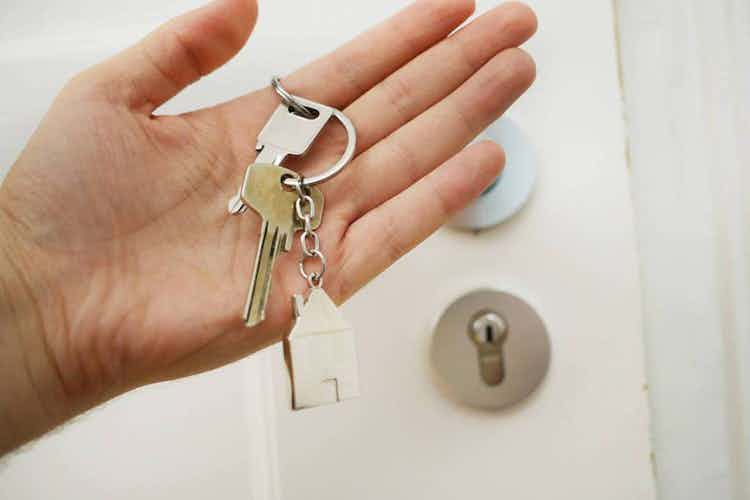Property is regarded as being a secure investment. Most people make their first property investment – buying their home with a mortgage – in their twenties or thirties. Is it possible to continue property investing when you get into your fifties, or seventies even?
You might not even have owned a property before, and by luck or hard work, you’ve now got the cash to look at property investments.
Whatever the reason you’re looking at property investment later in life, we’re going to show you some of your options. You’ve got a variety of investment choices, and here we’ll cover:
- Different types of direct property investment.
- How you can invest in property without owning a house.
- The potential positives and pitfalls of each.
Is Property Still a Good Investment in 2020?
Property is known to be a good store of value. However, as situations like the 2008 financial crash show, house values can go down as well as up.
As you get older, your pool of financing resources can start to shrink. Mortgage companies aren’t always keen on lending to people reaching pensionable age. There are other ways you can get money to invest in property without borrowing, though.
Some examples would be:
- Inheritance.
- Redundancy pay.
- Joint ownership with family.
- Sale of a business.
- Cashing in a pension pot.
When Should You Start to Invest in Real Estate?
If you were lucky enough to get on the property ladder in your younger days, you’ve likely already got a nice chunk of money stored in your house value. Even if you weren’t financially ready to buy a house back then, you don’t have to be put off from property investment when you’re older.
The important thing with property investment, like any financial commitment, is to start when you’re financially capable. Once you think you’re ready to take the plunge, it’s time to think about what type of investment you should make.
Buy-to-Let Investments
Buying a house to rent it out is a common way to invest in the property market. It gives you an immediate return on your investment, so it can be useful when you want to generate a pension income quickly.
Pros
- Generates a regular income.
- An easy to understand property investment.
Cons
- Dealing with problems can be costly and stressful.
- Can’t guarantee tenants all the time.
Property Development
Getting older can mean you have more time on your hands. Investing in a property that needs some work can be an excellent way to keep busy as you wind down your career towards retirement. Doing up a property to sell on can boost your financial nest egg quickly.
Pros
- You can quickly get your investment back and realise a profit.
- Learning house renovation skills can keep you mentally and physically fit.
Cons
- There’s a lot of research to be done about costs and ceiling prices in your area.
- You can’t guarantee you’ll make a profit.
Buying for Family
We all want to help out our family when we can. When getting a mortgage can prove challenging for young people, you can use your cash to buy a house and let your family live there. It’s a positive way to help out your children, for example, and you should still get a return on your investment as and when you choose to sell up.
Pros
- You can trust your kids to look after the house well.
- You’re able to help loved ones without losing control of your cash.
Cons
- You need to seek advice from a solicitor so you know your legal position.
- If you need to sell up quickly, it can be tough to take a home from your family.
Property Investment Funds
If you’d rather not own a house with buying, selling, and maintenance costs, you can invest in a property fund instead. Although still risky, because investments can go down as well as up, they are a viable alternative, especially if you don’t have enough cash to buy a whole house.
There are three main types of property investment funds:
- Real Estate Investment Trusts(REITs) are companies that pool investor funds to buy, develop, and sell property. You purchase shares in the company and get an income from dividend payments if it turns a profit. There are special tax arrangements in place for this type of investment.
- Shares in a listed property company work in a similar way to REITs, but they don’t come with the tax benefits. This can be an excellent way to invest in specialist property sectors that are hard to get into otherwise.
- Land banking can be precarious. You invest in a company that buys land without permission to build, hoping the value increases if planning permission from local authorities is granted. There are lots of scams as well as some legitimate companies in this field; be on your guard and do lots of research first.
Innovative Finance ISAs
You can choose to put up to your full ISA allowance each year into an Innovative Finance ISA, or IFISA. This type of account allows you to lend your money out through peer-to-peer borrowing, including as property loans.
You can lose your money if a borrower default on their loan, but the returns can be high. You need to calculate the risk you want to take with your money.
What Else Should I Know About Property Investment?
It’s worth noting that when you buy an investment property in the UK, you pay an extra 3% stamp duty on each band, pushing up costs. Other costs include solicitors’ and surveyor fees when you buy and sell and agents fees if they find tenants for you.
There are lots of different tax implications to investing in property. Putting your money into property investment funds can even be done through a Stocks and Shares ISA. Be sure to consult a tax advisor so you know what your liabilities are going to be before you invest.
Investing in property later in life can offer you a sound investment and regular income. Like with everything, there are pitfalls and ways that you can lose some or all your money. Now you should have a better understanding of your options as you contemplate your golden years of retirement.








